Hacker, theft, embezzlement: India's largest digital currency exchange faces another blunder!
Author: 636Marx
10 days ago, Indian social media exploded! A super cool high-speed rail video went viral online, and everyone was super excited, saying, "Wow, this is our Rishikesh-Kanapur Railway in Uttarakhand!" People believed this was solid evidence of India's rapid infrastructure development.
However, AFP investigated and found the truth was quite amusing: this was not India's railway at all, but a railway line in Hunan Province, China! Millions of people were deceived. Below is the debunking news released by AFP on October 8.
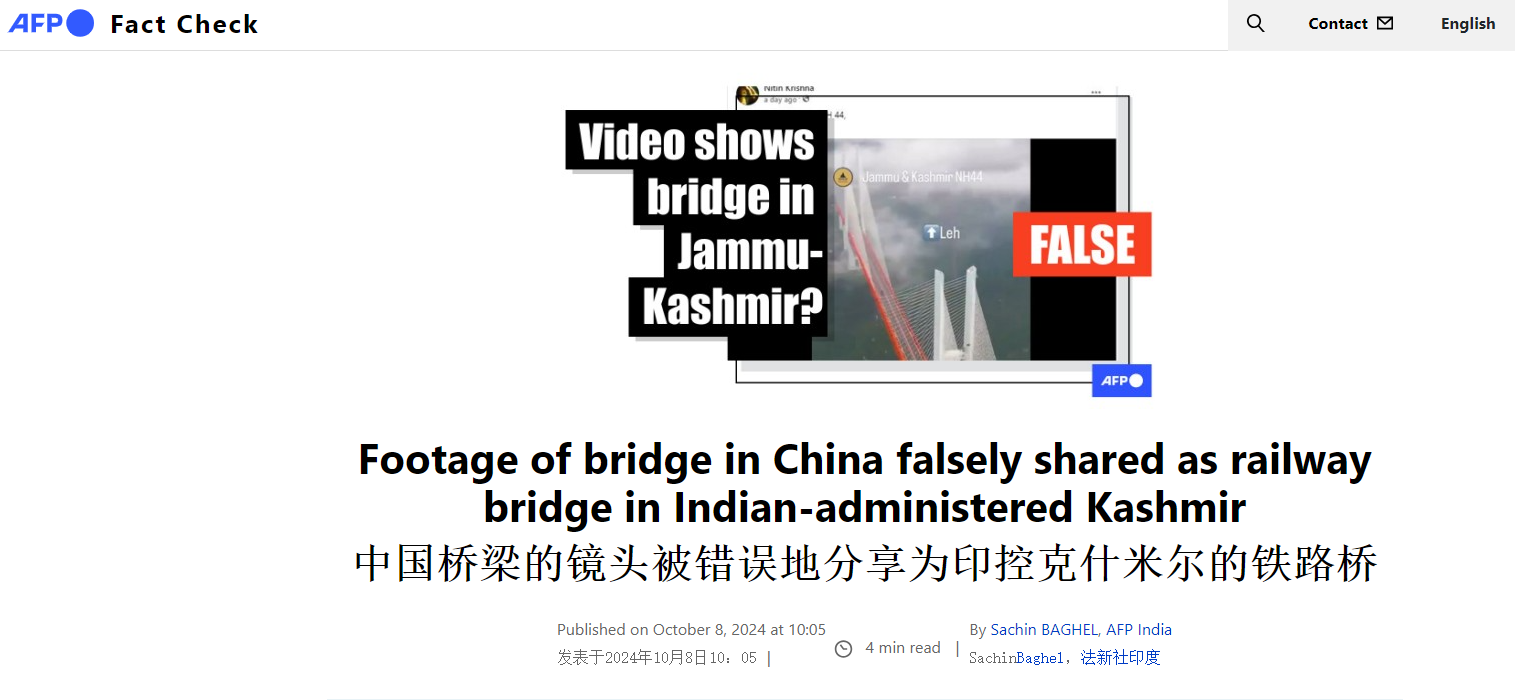
WazirX Starts Misappropriating Customer Funds
Ten days later, a more serious crisis is unfolding in India's digital currency sector. WazirX, India's largest digital currency exchange, became a victim of a massive cyberattack in July 2024. Hackers breached the platform's multi-signature wallet, resulting in significant losses of user assets.
Data from October 18 shows that WazirX secretly transferred $73.6 million of user funds to two digital currency exchanges: $72.13 million to Bybit and $1.5 million to KuCoin. These transfers occurred after the platform suspended withdrawals on July 18 this year in response to the cyberattack.
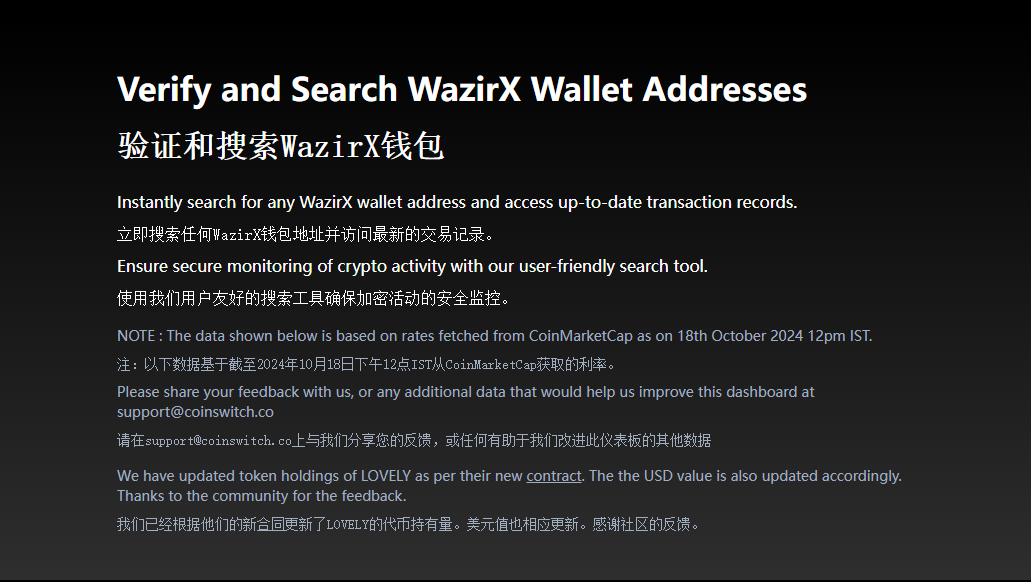
Consequences of the WazirX Hack
After the hack, a large number of Indian users were left in distress for weeks, unable to access their funds or understand the full extent of the breach. The exchange collaborated with cybersecurity firms and law enforcement to recover the stolen assets, but progress was slow. By August 2024, WazirX had restored most account balances and canceled transactions made after the attack.
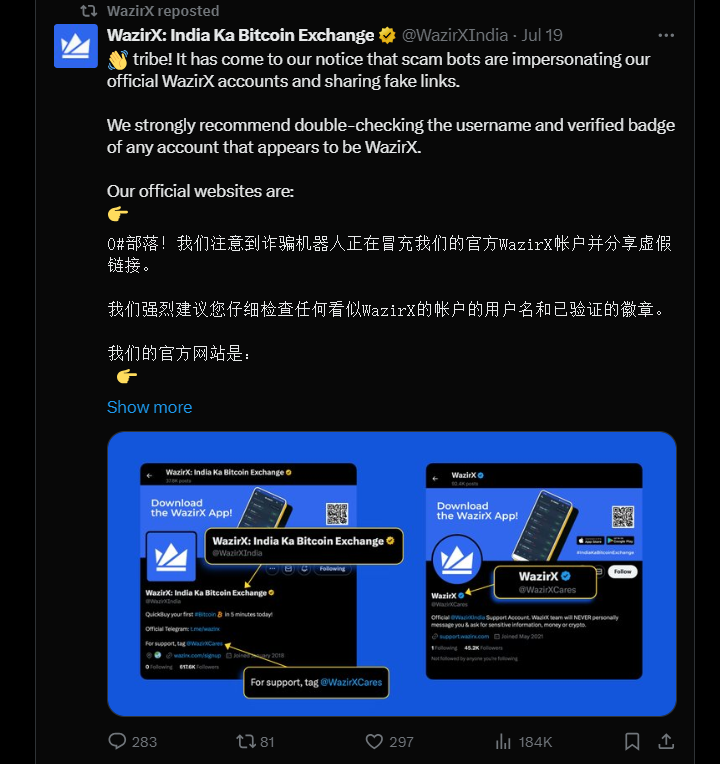
To address this situation, WazirX implemented several measures, including a bounty program that incentivizes ethical hackers to assist in tracking and recovering stolen funds. The program offers rewards of up to $23 million for actionable intelligence that can freeze and recover assets. Nevertheless, many Indian users lost confidence in the platform's security protocols and just wanted to withdraw their money.
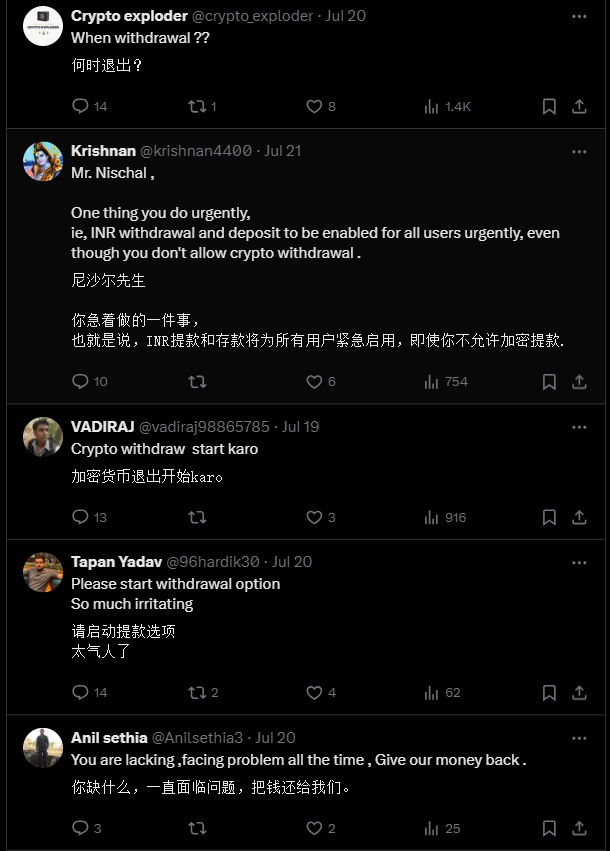
The unauthorized transfer of $73.6 million to Bybit and KuCoin further raised doubts among Indian users about WazirX's decision-making process and the safety of their funds. Additionally, KuCoin and Bybit have a history of other high-profile hacks (with hackers stealing over $280 million from KuCoin in 2020). The lack of immediate transparency regarding such a large-scale transfer left Indian users feeling very uncertain about their remaining funds.
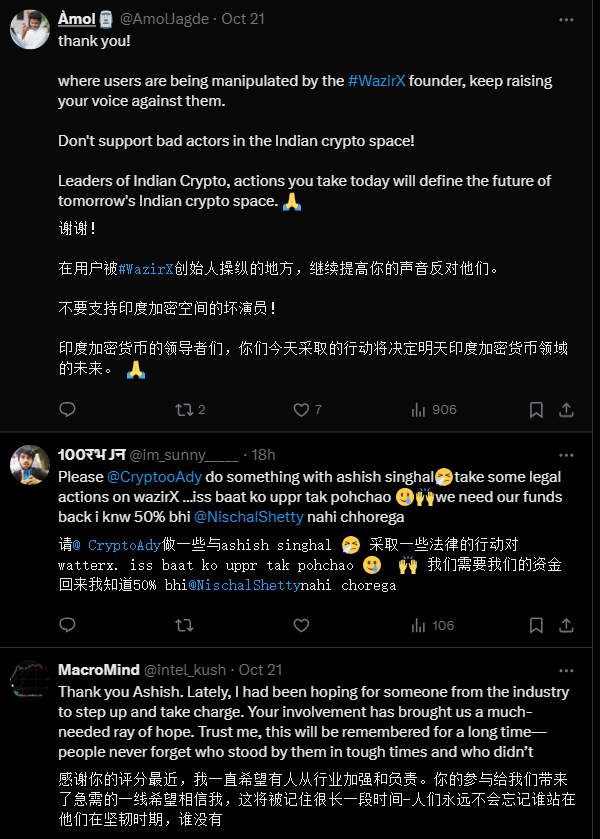
The Role of Government in India's Digital Currency Sector
The WazirX hack occurred during a period of regulatory uncertainty in India's digital currency market. The government has made slow progress in implementing clear regulations, leaving exchanges like WazirX in a legal gray area. While digital currencies are not banned in India, they remain a contentious issue. The Reserve Bank of India has expressed concerns that digital currencies could be misused for illegal activities, and the lack of regulation has sparked debates about the long-term viability of digital currencies in the country.
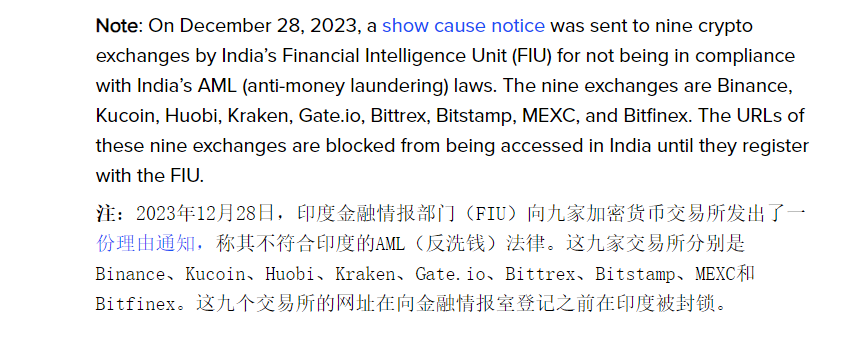
India is one of the largest digital currency markets in the world, and a recent report showed a surge in digital currency trading volume in India, especially as more Indians lose confidence in Indian banks. This is particularly true among young, tech-savvy investors. Below are the digital currency trading apps commonly used by Indians.
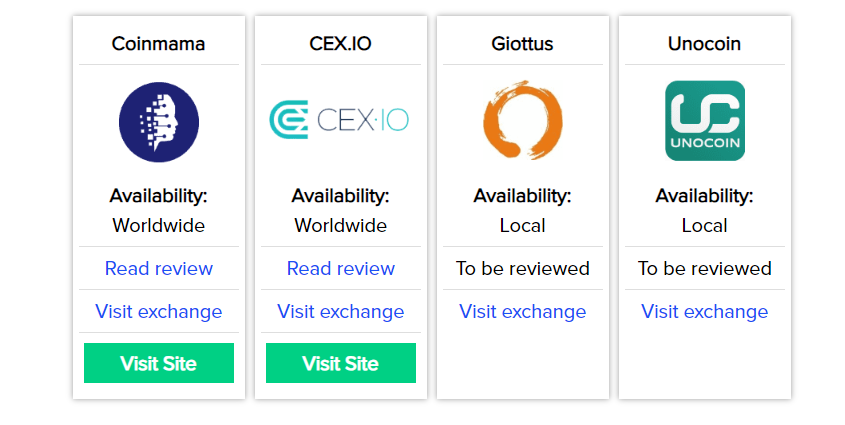
Lessons from the WazirX Hack
For exchanges, as the digital currency market grows, the number of malicious actors seeking to exploit system vulnerabilities will also increase. One of the safest methods for storing large amounts of digital currency is to use cold wallets, as they are offline and therefore less susceptible to hacking.
India, a country known for its frequent blunders, has a tough exterior, claiming to be a "YouTube" powerhouse. Despite the growing demand for digital currency in India, there remains significant weakness in modernization, technology, finance, and public awareness. The author believes that while digital finance can potentially leapfrog traditional finance, it cannot bypass the critical aspect of infrastructure development.








